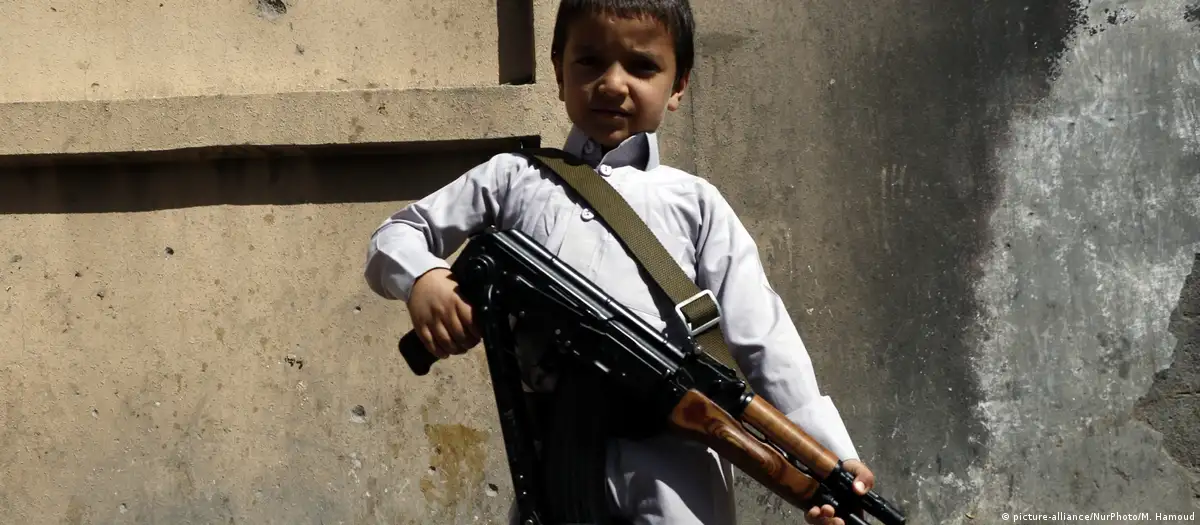Yemen, a country devastated by conflict, faces a crisis affecting its youngest and most vulnerable citizens. And, despite international efforts, the recruitment, and use of child soldiers remains a reality since at least 2009.
The use of children as soldiers, messengers, and spies is a clear violation of international law but is still widespread in different regions. In 2021, over 1,500 children were recruited. When a child is recruited, he or she is re-educated. They go through an extensive process of indoctrination and physical training in which children cease to be children, their innocence is taken away and they are thrown into the brutality of war. Both the physical and psychological toll on these children is immeasurable, ultimately leading to long-term trauma.
This already unsustainable situation has worsened in recent months amid hostilities in Gaza. Reports show a notable increase in the recruitment of child soldiers. Children, as young as ten years old, are taken to the front lines, often without sufficient training or protection. These children are exposed and used in active combat, subjected to artillery fire and trusted with dangerous jobs such as manning checkpoints and laying mines. This exploitation not only puts these children’s lives at direct risk but also deprives them of their right to a safe and healthy childhood.
A child soldier’s experience leaves them with deep psychological scars that later complicate reintegration into civilian life. The lack of accountability and continued recruitment efforts underscore the urgent need for international intervention and sustained pressure on all parties to the conflict.
The use of child soldiers perpetuates the cycle of violence, disrupts social structures and hinders efforts towards peace and stability in Yemen. The international community is actively advocating for the imposition of strict measures that would prosecute the perpetrator and look out for the children through organizations such as UNICEF and Human Rights Watch. Child soldiers seem almost disposable when exploited in a conflict. Yemeni children face a brutal reality; they are not only the victims of a war that disrupts their entire growth but they are also victimized and used as tools in a conflict that disregards their basic human rights. The international community must prioritize the protection of these children.
Being subjected to this transformation and instrumentalized as soldiers has a long-term impact, extending beyond the immediate trauma and loss of educational opportunity. These children are at risk of growing up without the skills necessary to contribute positively to society. The disruption of their education and normal development can culminate in a lost generation, hindering the country’s ability to rebuild and progress once the conflict ends. Moreover, the normalization of violence among these children can perpetuate cycles of violence and instability, making lasting peace even more difficult to achieve.
Efforts to demobilize and reintegrate child soldiers are crucial. These programs need to focus not only on immediate care and psychological support but also on providing long-term educational and vocational training. Ensuring that former child soldiers can see a future beyond the conflict is vital to their personal development and the future stability of Yemen. Programs aimed at helping children recover from their traumatic experiences to help them reintegrate back into their communities.
The reality of many Yemeni children, robbed of a childhood and instrumentalized in war, is another reminder of the human cost of conflict. Although international organizations and the Yemeni government have taken steps to address this problem, the road to eradicating the use of child soldiers is fraught with challenges. Continued advocacy, support for affected children and a firm commitment to the enforcement of international laws are crucial to ensure that Yemen’s children can look forward to a future free from the horrors of war.
The situation requires humanitarian aid, educational opportunities, psychological support and strict legal measures to protect children. The international community must not turn a blind eye to this crisis and must increase its efforts to achieve a resolution that prioritizes the safety and well-being of Yemeni children.

